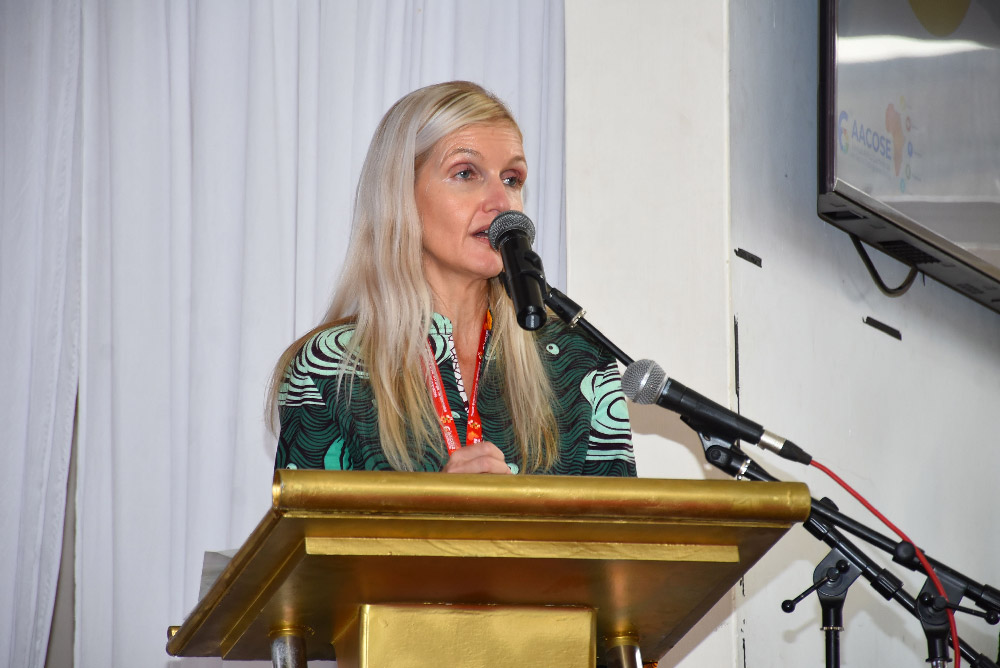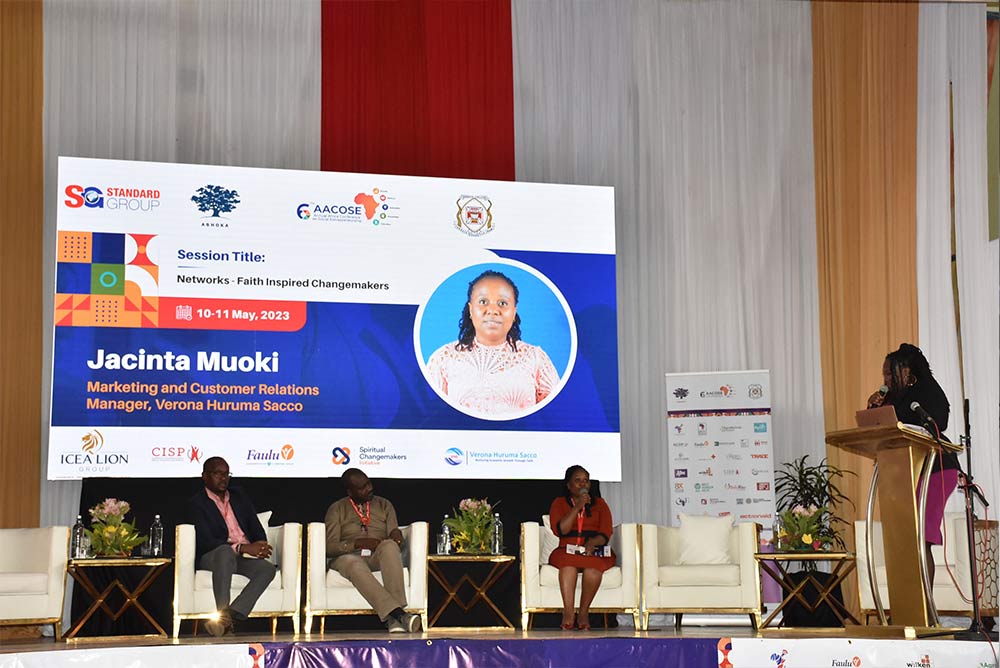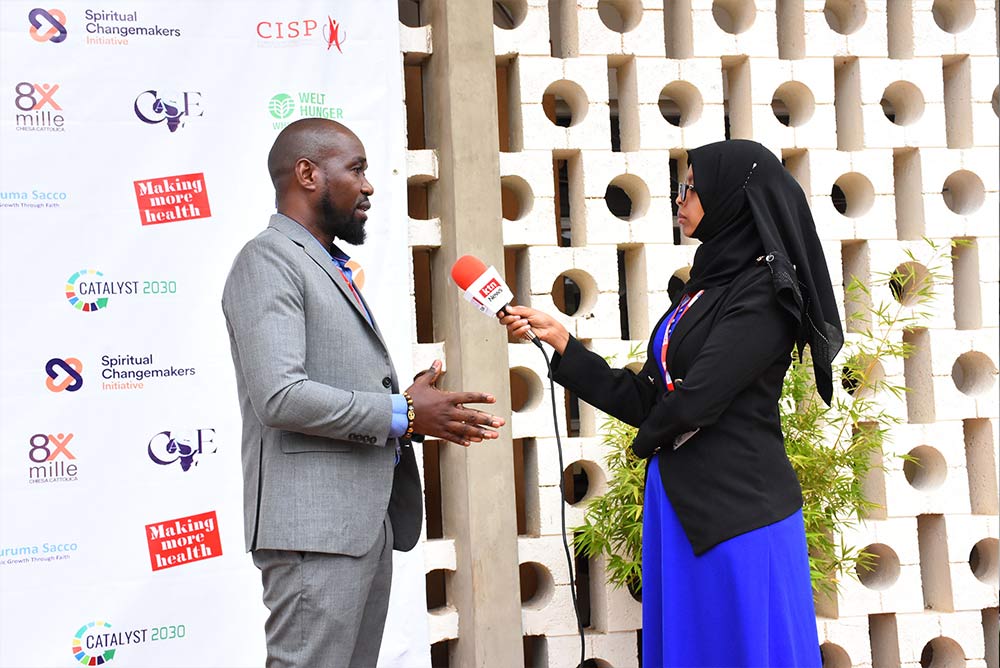The Annual Africa conference on Social Entrepreneurship took place from May 10-11, 2023, bringing together 18 partners and 55 exhibitors and more than 400 delegates from various parts of Africa. The delegates included key ecosystem players from leading social entrepreneurs, researchers, senior policymakers and government officials, international development partners and other leading impact investors.
The conference agenda consisted of engaging panel discussions and interactive breakout sessions on both days, culminating in a closing plenary. The discussions held throughout the conference were highly educational and enlightening.
The sessions illuminate key impacts of identified ecosystem pillars, including commercialization, human capital and capacity in relation to diversity, equity and inclusion, wellbeing and mental health in the workplace, legal policy frameworks for social entrepreneurs, faith-inspired changemakers networks, market access in agriculture and the new paradigm.
The opening plenary set a positive tone for the conference, encouraging participants to engage in meaningful discussions, share knowledge and forge partnerships to advance social entrepreneurship in Africa.
The remarks noted that there is a necessity in investing in a critical mass of social entrepreneurs to shape Africa’s future, through continuous learning and adaptation in a dynamic world and responsive policies, tax incentives and resource allocation at the county level to support social entrepreneurship.
Social entrepreneurship has transformative power in addressing broken systems and building a sustainable future for Africa. Collaboration is the driving force behind change and accelerated impact across the continent.
Overall, the panel showcased the importance of combining social impact and commercialization efforts to drive transformative change in Africa, offering valuable insights for aspiring and established social entrepreneurs seeking to make a positive impact on the continent.
Social entrepreneurs’ success is drawn from their ability to adapt to country-specific challenges, maintaining mission integrity while seeking funding and building strong networks for social entrepreneurs.
Additionally, partnerships needs to be built between the private sector, social entrepreneurs and government entities, along with diversified funding sources and capacity-building programs.
Considering the significant population of youth in Africa, it is important to address challenges faced by young people such as lack of purpose and value, which leads to unemployment and societal issues. On this note, the conference noted that tt is possible to unlock Africa’s potential by transforming the education system and providing mentorship and role models.

Lessons from DEI emphasise the significance of role models, empowerment sessions and training in fostering inclusivity and developing necessary skills. By providing visible examples of success in various fields and positions, role models inspire individuals to believe in their own potential.
Empowerment sessions and training create safe spaces for discussions on work-life balance, confidence building, public speaking and pitching, equipping individuals with the skills and mind-sets needed for success.
Addressing cultural biases and challenging stereotypes is essential in promoting inclusivity. By encouraging children to pursue their interests and abilities rather than conforming to traditional gender roles or societal expectations, we can foster a more inclusive mindset from an early age. Institutions must also take a firm stance against workplace harassment and abuses to demonstrate that such behaviour is not normal or acceptable. Additionally, achieving true equality requires the active support and advocacy of both men and women. Men must be involved in promoting gender equality, making it a collective effort rather than solely a women’s issue.
Institutions can play a vital role in cultivating a culture of inclusion and diversity by implementing policies that support individuals with disabilities, providing reasonable accommodations, hiring interpreters and offering affirmative action. It is crucial to involve individuals with disabilities in decision-making processes to ensure their needs and experiences are considered when designing policies and accommodations. Furthermore, individuals must reflect on their own biases and be open to challenging and changing them to create a more inclusive environment. Taking action, no matter how small, is essential in promoting diversity, equity and inclusion in our society.
Mental health should be a shared responsibility between the government and policy makers, mental health professionals, health care providers, community organizations and members of the community.
The healthcare service delivery needs to be redefined with more of the responsibility and mental health risk shifted to national and private insurance and public health donor programs.
One significant issue is the lack of insurance coverage for mental health, which makes it difficult for individuals to access affordable and adequate healthcare. This emphasizes the need to bridge the gap in insurance coverage and ensure that mental health services are accessible to all.
Addressing the gaps in mental healthcare service delivery needs a human rights approach. There are several unmet mental health needs in Kenya and there should be efforts taken towards training community volunteers. Other gaps include accessibility, affordability and awareness on preventive measures.
The entrepreneurial community needs to advocate for policy changes, prioritize prevention, support caregivers and promote evidence-based practices. The focus would be to develop context-specific solutions with the potential to benefit not only Kenya but also other countries facing similar challenges.
There is a need for collaboration between academia, government and industry. A great example is the collaboration of academia and NGOs in capacity building initiatives. Research-driven innovation triggers social transformation and the need for lifelong learning and adapting to emerging challenges.
The speakers emphasized the importance of understanding government guidelines and policies, utilizing local resources for sustainability and making education accessible and affordable for all.
They also highlighted the adaptability of technology in providing inclusive solutions and the significance of supporting individuals with disabilities and empowering marginalized groups.
Social entrepreneurs need to think about innovative funding models and supportive policies for driving sustainable development and social innovation. In addition, partnerships and collaborations create a lasting impact within communities.
The partnerships need to be mutually beneficial partnerships that address community needs and the partners should avoid extractive practices.
Intra-African collaborations should be stronger and should leverage on indigenous knowledge and focus on overcoming language barriers. In summary collaborative efforts have transformative potential and there is a need for a supportive ecosystem to drive meaningful social change.

Creating a life-giving culture within an organization as an entrepreneur is important. It involves valuing, empowering and supporting employees in their individual callings and endeavours, ultimately leading to the transformation of lives.
By fostering a culture of respect, accountability and empowerment, entrepreneurs can ensure that employees feel valued and motivated to contribute to the overall mission of the business.
Data integration and digitization of the agricultural marketplace are crucial for generating macro intelligence and promoting demand-driven production. Strengthening support and investment, comprehensive capacity-building and fostering collaboration and data integration enables market development.
There is a need to prioritise market access for agriculture growth and food security. By addressing challenges, promoting innovation and fostering collaboration, stakeholders can create inclusive and resilient agricultural systems.

Agriculture plays a critical role in addressing poverty, raising income and ensuring food security and nutrition. Challenges such as slow productivity and issues in agribusinesses were identified.
Entrepreneurs showcased innovative solutions leveraging technology to provide farmers with affordable and customized services, aiming to improve market access and financial inclusion.
Collaboration among social entrepreneurs, government and the private sector was emphasized to address market dysfunction and institutional voids.
Intra-African collaborations should be stronger and should leverage on indigenous knowledge and focus on overcoming language barriers. In summary collaborative efforts have transformative potential and there is a need for a supportive ecosystem to drive meaningful social change.
There is need for collaboration, co-creation and co-leadership to foster a changemaker world.
Collaboration should involve all stakeholders, including NGOs, government, private sector and social entrepreneurs.
Key skills, frameworks and initiatives supporting this new world were discussed, such as empowering girls and women, addressing barriers to social entrepreneurship and promoting agro-ecology and climate resilience.
The role of media in promoting collaboration and co-creation includes media organizations driving change and amplifying the stories of social entrepreneurship. Grassroots movements were recognized as drivers of social change, challenging and holding systems accountable. The importance of regional integration and government-driven cooperation for sustainable economic development in Africa was emphasized.
The conference called for shared vision, breaking of silos and leveraging shared assets to achieve co-creation and collaboration. Stakeholders should take action and make collaboration and co-creation part of their organizational DNA. Success is transforming lives, leveraging technology and knowledge and achieving measurable positive change. Therefore it is important that we amplify the stories of social entrepreneurship, adopt transformational funding partnerships and embrace collaborative approaches for a changemaker world.
The closing ceremony introduced two derivative initiatives: the Africa Academic Hub, a collaboration between AACOSE, Catalyst 2030 and ANSES, aimed at supporting research and education in social entrepreneurship and the SAT portfolio, which includes forums, stories, expos and awards to amplify the stories of social entrepreneurs. The need for more voices in the ESG agenda, intensified knowledge and awareness through forums like AACOSE and the importance of funding for quality solutions cannot be overstated.
Social entrepreneurs have the potential to address market failures and encourage collaboration between government and the private sector.
Africa is a continent of opportunities and there is need for coordinated efforts and an enabling environment to unlock its potential.